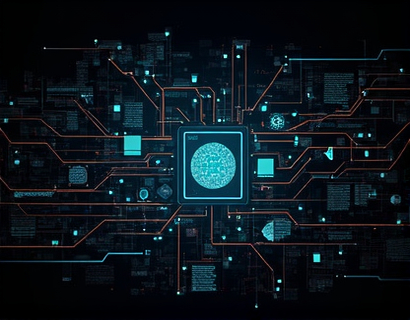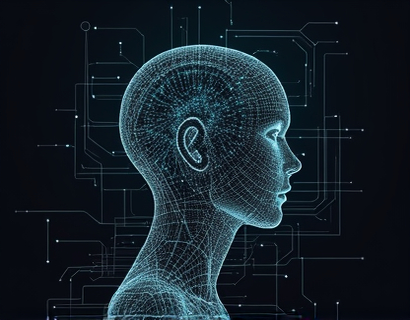AI-Powered Nanotech Learning: Transforming Education and Professional Development
The integration of Artificial Intelligence (AI) in educational platforms has opened new horizons for learning, particularly in specialized fields like nanotechnology. This article delves into how AI-powered tools are revolutionizing the way educators, professionals, and curious minds of all ages access and understand nanotechnology. By leveraging AI, these platforms offer verified, engaging, and child-friendly content, making complex topics accessible and enjoyable for everyone.
Understanding Nanotechnology Through AI
Nanotechnology, the manipulation of matter on an atomic, molecular, and supramolecular scale, is a field that demands a deep understanding of physics, chemistry, biology, and engineering. Traditional educational methods often struggle to convey the intricacies of nanotechnology due to its complexity and the rapid pace of advancements. AI-powered educational platforms address this challenge by providing dynamic, interactive, and personalized learning experiences.
AI algorithms can analyze vast amounts of data to curate content that is not only accurate but also tailored to the user's level of expertise. For educators, this means access to up-to-date research papers, case studies, and teaching materials that can be easily integrated into their curricula. Professionals can stay abreast of the latest developments and applications in the industry, enhancing their skills and knowledge continuously.
Verified Content for Trust and Reliability
One of the key advantages of AI-powered educational platforms is the emphasis on content verification. In a field as precise and critical as nanotechnology, ensuring the accuracy of information is paramount. These platforms employ rigorous verification processes to filter and present only the most reliable and authoritative sources. This trustworthiness is crucial for both educators and professionals who rely on accurate information to make informed decisions and teach their students effectively.
Moreover, verified content helps build a solid foundation of knowledge, reducing the risk of misinformation and fostering a deeper understanding of nanotechnology. Users can confidently explore topics ranging from the basics of nanoscale materials to advanced applications in medicine, electronics, and environmental science.
Child-Friendly Learning Experiences
Recognizing the importance of early education in STEM fields, AI-powered platforms offer child-friendly versions of their content. These versions are designed to be engaging and safe, with interactive elements such as games, simulations, and visual aids that make learning fun and accessible for children. Young learners can explore the microscopic world of nanotechnology through intuitive interfaces that cater to their developmental stage.
For parents and educators, this feature provides peace of mind knowing that children are exposed to high-quality, educational content that aligns with learning objectives. The child-friendly versions also encourage curiosity and a love for science from a young age, potentially inspiring the next generation of nanotechnology experts.
AI Chat Interface: A Personalized Learning Companion
A standout feature of these AI-powered platforms is the integration of an AI chat interface. This interactive tool serves as a personalized guide, answering questions, providing explanations, and offering additional resources based on the user's queries. The chat interface is designed to mimic human-like conversation, making the learning experience more natural and engaging.
For educators, the AI chat can assist in lesson planning and answer specific questions about nanotechnology topics, saving time and enhancing their teaching capabilities. Professionals can use it to gain insights into industry trends, research breakthroughs, and best practices. Curious minds of all ages can explore the subject at their own pace, receiving tailored responses that match their level of understanding.
Interactive Q&A Sessions
The AI chat interface supports interactive Q&A sessions, allowing users to engage in real-time discussions. This feature is particularly beneficial for students who may have questions during class or for self-studiers who need clarification on complex concepts. The chat can provide immediate feedback, reinforcing learning and addressing any confusion promptly.
Moreover, the chat can suggest related topics and resources, encouraging deeper exploration and a more comprehensive understanding of nanotechnology. This dynamic interaction helps users build a robust knowledge base and stay motivated in their learning journey.
Enhancing Professional Development
For professionals in fields related to nanotechnology, AI-powered educational platforms offer continuous learning opportunities. The industry is rapidly evolving, with new discoveries and applications emerging regularly. Staying updated is crucial for maintaining competitiveness and relevance in the job market.
The platforms provide access to specialized courses, webinars, and workshops led by industry experts. These resources cover a wide range of topics, from nanomaterials and nanofabrication to nanomedicine and environmental nanotechnology. Professionals can earn certificates upon completion, adding value to their professional profiles.
Additionally, the AI chat can facilitate networking opportunities by connecting users with peers and experts in the field. This community aspect fosters collaboration and knowledge sharing, further enriching the learning experience.
Accessibility and Inclusivity
Inclusivity is a core principle of AI-powered educational platforms. By offering content in multiple languages and adapting to different learning styles, these platforms ensure that learning opportunities are accessible to a diverse audience. Users from various cultural backgrounds and with different abilities can benefit equally from the resources provided.
For educators, this means they can cater to a more inclusive classroom, supporting students with diverse needs and backgrounds. The AI chat can also provide accommodations such as text-to-speech, language translation, and simplified explanations, making the content more accessible to all learners.
Future Prospects and Innovations
The integration of AI in nanotechnology education is just the beginning. Future innovations may include more advanced virtual and augmented reality experiences, allowing users to visualize and interact with nanoscale structures in immersive environments. These technologies can further enhance understanding and engagement, making complex concepts more tangible and intuitive.
Additionally, AI algorithms will continue to evolve, offering even more personalized and adaptive learning paths. Predictive analytics can identify areas where users may struggle, providing proactive support and resources to help them overcome challenges. This continuous improvement ensures that learners always have the best possible tools at their disposal.
Conclusion
AI-powered educational platforms are transforming the way we learn about and engage with nanotechnology. By providing verified, interactive, and accessible content, these platforms empower educators, professionals, and curious minds to explore and master this fascinating field. The inclusion of AI chat interfaces adds a personal touch, making the learning experience more dynamic and effective. As technology advances, the potential for innovation in nanotechnology education continues to grow, promising a brighter and more informed future for all.










































